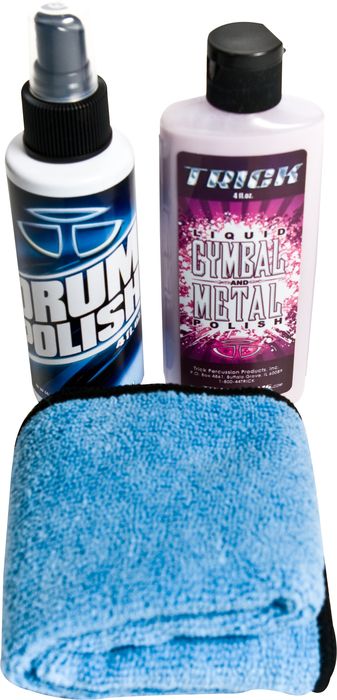Tune Up: Caring For Your Percussion Instruments
posted in: Features • Reviews & Playlists
 This week, we’re closing out our short series about caring for the gear you’ve spent so much money procuring. Now it’s time for some tips on cleaning, storing and maintaining your drums/percussion instruments. Since playing drums means hitting them really hard with a stick, it’s often tough to keep them in the best working shape. Still, there are options to keep in mind for storage and cleaning.
This week, we’re closing out our short series about caring for the gear you’ve spent so much money procuring. Now it’s time for some tips on cleaning, storing and maintaining your drums/percussion instruments. Since playing drums means hitting them really hard with a stick, it’s often tough to keep them in the best working shape. Still, there are options to keep in mind for storage and cleaning.
Cleaning
First, let’s discuss some cleaning choices. In the case of the drums themselves, we’re mostly referring to polish and cleaning solutions. There are various types for every part of the drum set. First, we’ll quickly highlight some of the different types of products specifically designed to clean and polish cymbals and hardware. There are obviously many brands of polish out there, so selecting one seems a bit arbitrary. We would, however, recommend looking at the Trick drum care line. They have a kit that comes with a spray polish/cleaning solution as well as a thicker cream. They also include a good polishing towel.
 For cymbals/hardware, the name of the game is moderation. Make sure you don’t put too much solution on the cymbals or hardware because it will just need to be buffed out in the end anyway (otherwise, you will leave behind streaking and other marks). Making sure that you use a proper solution on cymbals and hardware will ensure that they stay clean, shiny and don’t rust. Keep in mind that many cymbal brands (Zildjian, Paiste, etc) often make their own polishes.
For cymbals/hardware, the name of the game is moderation. Make sure you don’t put too much solution on the cymbals or hardware because it will just need to be buffed out in the end anyway (otherwise, you will leave behind streaking and other marks). Making sure that you use a proper solution on cymbals and hardware will ensure that they stay clean, shiny and don’t rust. Keep in mind that many cymbal brands (Zildjian, Paiste, etc) often make their own polishes.
Storage/Maintenance
Another aspect of drum care to keep in mind is storage. Much like storing your guitar in a case/room with proper humidity levels (and unlike the drier environments needed for your electronics), drums need to be stored in the ideal humidity range for wood”for our purposes here, this is typically somewhere between 30% and 50%. If the air is too dry, your drums will crack, and if the air is too wet your drums will warp.
In terms of maintenance, the most important consideration is just making sure that the accessories are changed when they need to be. Replacing heads and cymbal felts are simple ways to keep your set sounding as good as possible. While changing a head can be done easily, it’s important to tighten it evenly. By this, we mean tightening a nut, and then tightening the nut directly across from it (rather than next to it). You should continue to move around the head in this pattern as opposed to tighenting nuts in a clockwise motion. Check out this article for some more detailed tips.
The bottom line is to treat your drums much like you’d treat a guitar or a computer. Give them the proper environment, clean them and maintain their replaceable parts. Just because they are played by hitting them with a stick, doesn’t mean that proper considerations shouldn’t be taken. The better you are at these precautions, the longer your kit will last.
